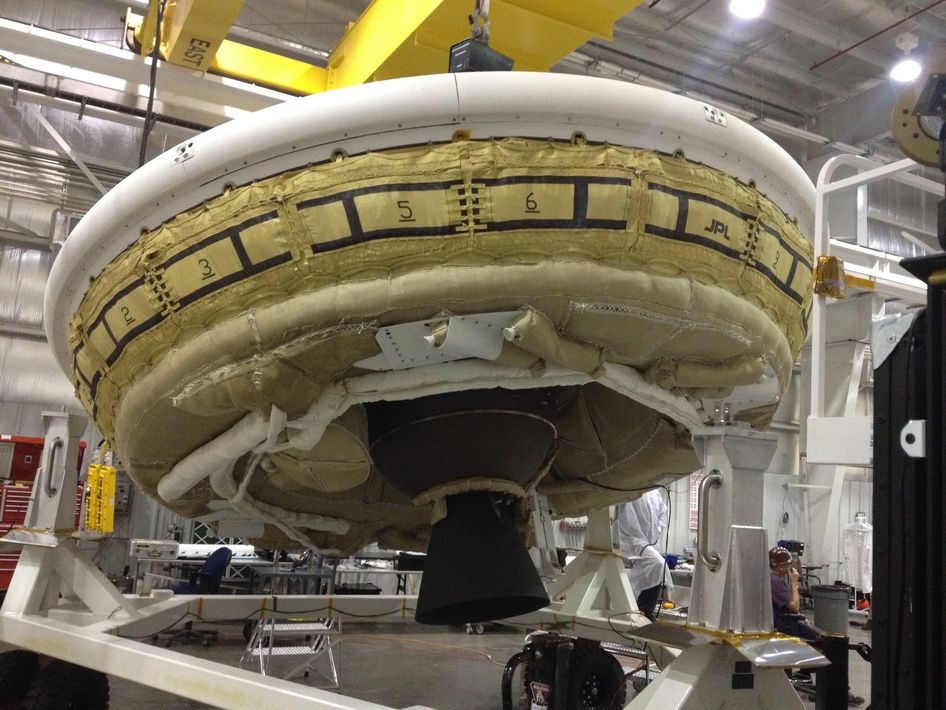
NASA is set to livestream a "spin-table test" of its very own flying saucer tomorrow.
The first proven sighting of a flying saucer hasn't come from alien invaders, but from NASA's Low-Density Supersonic Decelerator (LDSD) project, which is being developed to deliver large payloads safely to the surface of planets with atmospheres, even a slight one as found on planets such as Mars.
The flying saucer carries two technologies that are being tested to help slow and steady the descent to the surface - a complicated procedure when dealing with air speeds of mach 3.5, or around 2,500 miles-per-hour, which can be expected when descending onto the Red Planet.
The first test flight was carried out in June last year, and the the Supersonic Inflatable Aerodynamic Decelerator (SIAD) - a doughnut-shaped air brake that helped reduce the vehicle's speed from 3.8 to 2 times the speed of sound - and a Supersonic Disksail Parachute - the largest supersonic parachute ever flown - were both carried on board. The test was hailed by NASA as a success although the parachute failed to properly deploy.
The vehicle is 15-feet-wide, and weighs 7,000-pounds, and it is hoped that the technologies being tested will enable the LDSD to land on higher-altitude, hard to reach places on alien planets. The project has had to find a way to land safely on Mars, which has an atmosphere somewhere between Earth's relatively dense atmosphere, and the non-existent atmosphere of Earth's moon.
Space fans can also ask LSDS scientists questions during a live Q&A over Twitter as they watch the spin-table test take place between 9-10am Pacific Daylight Time. The test will check how the equipment copes with being spun at extremely high speed.
NASA says it will be launching the flying-saucer into near-space for the second time in June this year, from the U.S. Navy's Pacific Missile Range Facility in Hawaii.
Uncommon Knowledge
Newsweek is committed to challenging conventional wisdom and finding connections in the search for common ground.
Newsweek is committed to challenging conventional wisdom and finding connections in the search for common ground.
About the writer
Luke is a reporter at Newsweek Europe based in London covering politics, business, science and technology. @HurstWords





